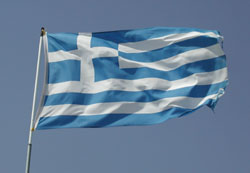
|
How Much Is The Inheritance Tax in Greece? |
|
By Christos Iliopoulos
The person who wants to obtain his/her share of the inheritance must evaluate everything that is included in the property of the deceased at the time of death. Once this evaluation has been done, everything must be declared to the tax authority, in order to determine what is the total value of the inheritance, and what is the value of each share. An inheritance may consist of cash, bank accounts, jewelry, stock shares, bonds, movables etc., but the most important part of an inheritance in Greece is usually real estate. Real estate in Greece can only be evaluated according to an objective system of rules that the government, through the tax authority, has imposed on all transactions. Whether someone is buying, selling or inheriting property, they have to pay the equivalent tax over a minimum amount – value that the tax authority has estimated. This minimum amount is called tax value. The tax value of a property is usually much lower than its market value. If you are buying real estate at a market price above the tax value, you pay tax on this market value. But if you are buying property at a market price below its tax value, you will pay tax on the tax value, regardless of the fact that you are buying at a lower price. Once you evaluate the tax value of your share of the inheritance, you can obtain ownership of your share only after you pay the inheritance tax, or after you have formally agreed to pay several installments in the future.
Although several laws apply in different cases, depending on the time of death of the deceased, the inheritance tax system for those who died after 1 Jan. 2003 is the following: The surviving spouse does not pay tax for an inheritance that has a tax value of up to 300,000 euros. This applies as well for children that are below 18 years old. The children that are above 18 years old and the parents of the deceased do not pay tax for an inheritance share that is worth up to 20,000 euros of tax value. They do pay inheritance tax 5% for the next 40,000 euros of their share, 10% on the next 160,000 euros of their share and they pay 20% on any amount after the first 220,000 euros of tax value (20,000 + 40,000 + 160,000 euros). Grandchildren, grandparents, brothers and sisters do not have to pay tax for the first 15,000 euros of tax value, they do pay tax 10% on the next 45,000 euros, 20% on the next 160,000 euros, and 30% on any amount above 220,000 euros worth of inheritance share. Other relatives, apart form the above categories, and those heirs who have absolutely no relation to the deceased, do not pay tax for the first 5,000 euros of their share, while they have to pay 20% on the next 55,000 euros, 30% on the next 160,000 euros, and 40% on any amount exceeding the first 220,000 euros of their share. We must point out that on the issue of how much inheritance tax you pay it makes no difference whether you have the Greek citizenship or not. The ownership and property rules apply the same to Greeks and non-Greeks. However, who inherits what share is determined by the citizenship of the deceased. If the deceased had the Greek citizenship (or dual citizenship – Greek and something else), then, for property in Greece, it is Greek law that determines what are the inheritance shares. While, if the deceased was not Greek, then it is the law of his citizenship that will determine who inherits how much.  Christos Iliopoulos is an attorney at law, LL.M., in Athens, Greece, specializing in International and European Business Law. For more information about him, see his brief biographical sketch under the HCS section for Contributing Authors at http://www.helleniccomserve.com/christosiliopoulosbio.html. He has submitted many articles to HCS; readers can browse these in the archives section bearing his name at the URL http://www.helleniccomserve.com/archiveiliopoulos.html. He can be contacted by e-mail at bm-bioxoi@otenet.gr or by phone (from the US) 011-30-210-6400282; mobile 011-30-693-2775920, fax 011-30-210-6400282, or by postal mail at the address: 105 Alexandras Ave., Athens, 11475, HELLAS Christos Iliopoulos is an attorney at law, LL.M., in Athens, Greece, specializing in International and European Business Law. For more information about him, see his brief biographical sketch under the HCS section for Contributing Authors at http://www.helleniccomserve.com/christosiliopoulosbio.html. He has submitted many articles to HCS; readers can browse these in the archives section bearing his name at the URL http://www.helleniccomserve.com/archiveiliopoulos.html. He can be contacted by e-mail at bm-bioxoi@otenet.gr or by phone (from the US) 011-30-210-6400282; mobile 011-30-693-2775920, fax 011-30-210-6400282, or by postal mail at the address: 105 Alexandras Ave., Athens, 11475, HELLAS© 2000 Hellenic Communication Service. All Rights Reserved. |

